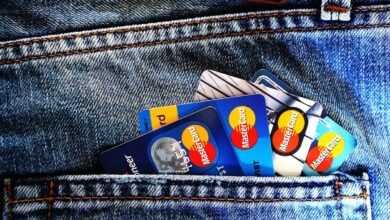
- No. 1 - Transfer duty
- No.2 - Transfer costs
- No.3 - Bond registration costs
- No.4 - The cost of homeownership
Property investment is a great way to make your money grow in the long-term, but it is also something that can be a huge risk if not managed correctly.
Buying a home isn’t simply the cost of the house itself, but there are also other financial factors that you need to take into account when budgeting for a new home.
After all, a property is an investment and you would want to get the most out of such an investment. For an investor to achieve this goal, they need to consider all the financial factors involved in purchasing a home.
Here are a few costs to bear in mind:
No. 1 – Transfer duty
The transfer duty is not something that has been made up so that you pay more for your home!
It is defined and governed by the South African Revenue Service (SARS) as a tax levied on the value of any property acquired by any person by way of a transaction or in any other way.
The transfer duty must be paid within six months from the date of acquisition of the property. If it is not paid in time, interest will accrue with 10% per annum for each complete month.
If an investor pays less than R900,000 for a property they will be exempt from transfer duty. Not having to pay transfer duty will put the investor ahead of the curve right from the start.
The Transfer Duty Act also exempts the acquisition of property that falls into the category of goods supplied subject to VAT. If there is a situation where the seller is a VAT vendor, VAT will take preference over the transfer duty. Instead, buyers will pay 15% VAT which has already been calculated into the selling price.
No.2 – Transfer costs
This is not to be confused with transfer duty. They are two totally different things.
Transfer costs are the fees that are paid to the attorney for the work they do during the transfer process. A conveyancing attorney will be required to make the transferal of the property official and to ensure that the property is in the name of the new owner.
The amount that investors pay an attorney for transfer costs is set out in tariff guidelines and varies depending on the total value of the property that is being sold.
Related Reading: 4 Questions to Ask Yourself when Buying a Distressed Property
No.3 – Bond registration costs
A large percentage of the population depends on loans in order to buy their dream homes.
The financial institution that provides the funds to purchase the property will require some form of security which is usually a bond registered over the property. The investor will be required to pay the bond registration costs and this includes a bank initiation fee.
The bond registration costs are payable depending on the size of the bond that has been taken out. These costs will be paid out to a conveyancing attorney who will then be responsible for tending to the necessary paperwork and ensuring that the bond registration gets to the deeds office.
No.4 – The cost of homeownership
Aside from these costs that take place during the process of purchasing a house, there are also monthly costs involved when owning a property.
These are costs like home insurance, levies, rates and taxes, and water and electricity. If the property is being let out, then the investor should make sure that the house is habitable at all times.
As the landlord, ongoing maintenance should be done on a regular basis.
Bottom line: understanding the full cost of purchasing a property will help investors budget effectively.






